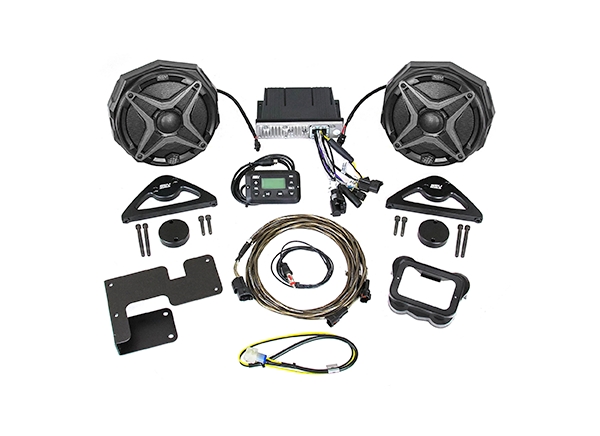Ford and Ansys Accelerate Development of Next-Generation Predictive Headlight Technology

Ansys (NASDAQ: ANSS) simulation solutions enable Ford to accelerate the development of its predictive smart headlights and improve nighttime driving for consumers. Engineers at Ford value Ansys’ high fidelity, physics-based lighting capabilities to optimize and validate headlight performance virtually, significantly reducing dependency on costly, real-world night drives.
Nighttime and low-light conditions decrease visibility for drivers, making it harder to react to wildlife, pedestrians and sudden turns. Ford is testing a new predictive smart headlight system that uses real-time location data to direct beams into upcoming turns, allowing motorists to better see around corners and respond to hazards. But as advanced driver assistance systems permeate more automotive features and increase functionality, an ever-increasing number of scenarios must be accounted for — making physical testing and validation a difficult and complex process.
To reduce reliance on building and testing physical prototypes — a costly and time-consuming process — Ford leverages Ansys’ AVxcelerate Headlamp solution to optimize performance in a virtual environment. Ansys’ vehicle headlight solution features real-time, physics-based optical simulation and driver-in-the-loop functionality to replicate the physical world with a high degree of predictive accuracy. Empowered by a realistic virtual night driving experience, engineers at Ford can rely on insights gained from simulations to improve product design long before physical headlamp prototypes are available.
“The predictive accuracy of Ansys simulations yield a variety of significant benefits for our team, from being able to engineer for edge case scenarios to less late-night road tests,” said Michael Koherr, advanced lighting research engineer at Ford of Europe. “With the ability to truly gauge system performance in a virtual environment, we’re able to identify opportunities to improve our product well before entering the physical testing stage. Simulation has and will continue to play a critical role in our quest of making driving at night as safe and easy as during the day.”
To see how Ford’s predictive smart headlights guide drivers through the dark, click here.
“Ford’s intelligent headlights represent an excellent case of how simulation, innovation and safety go hand-in-hand,” said Shane Emswiler, senior vice president of products at Ansys. “With our solutions, engineers at Ford can quickly test its system under countless scenarios and lighting conditions to help ensure that the first physical prototype is in excellent working condition. Ultimately, that means Ford’s technology can spend less time as a concept and more time on the road, reducing accidents and saving lives.”
/ About Ansys
If you’ve ever seen a rocket launch, flown on an airplane, driven a car, used a computer, touched a mobile device, crossed a bridge or put on wearable technology, chances are you’ve used a product where Ansys software played a critical role in its creation. Ansys is the global leader in engineering simulation. Through our strategy of Pervasive Engineering Simulation, we help the world’s most innovative companies deliver radically better products to their customers. By offering the best and broadest portfolio of engineering simulation software, we help them solve the most complex design challenges and create products limited only by imagination. Founded in 1970, Ansys is headquartered south of Pittsburgh, Pennsylvania, U.S.A. Visit www.ansys.com for more information.
Ansys and any and all ANSYS, Inc. brand, product, service and feature names, logos and slogans are registered trademarks or trademarks of ANSYS, Inc. or its subsidiaries in the United States or other countries. All other brand, product, service and feature names or trademarks are the property of their respective owners.





